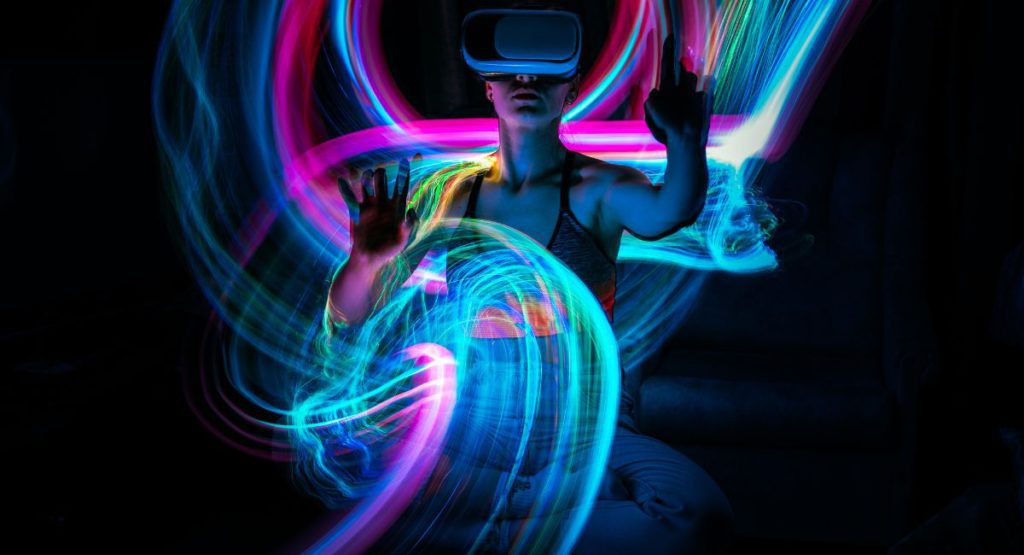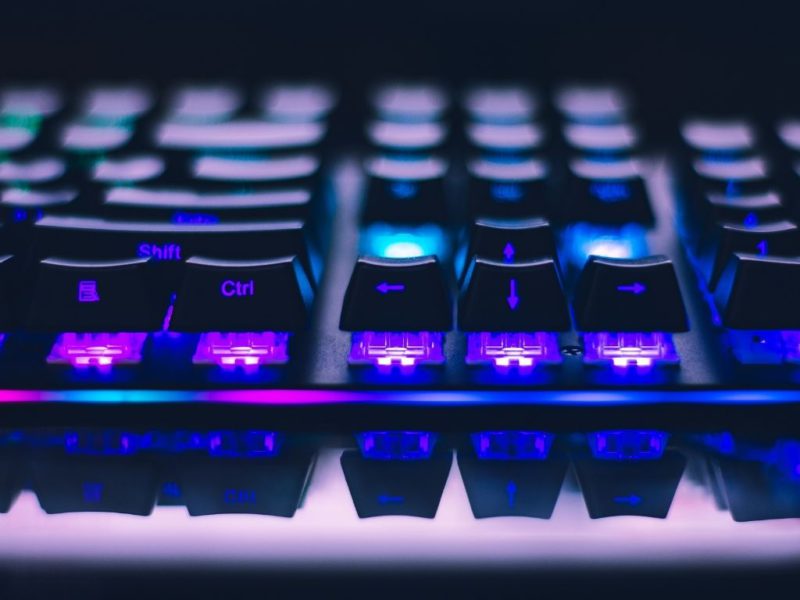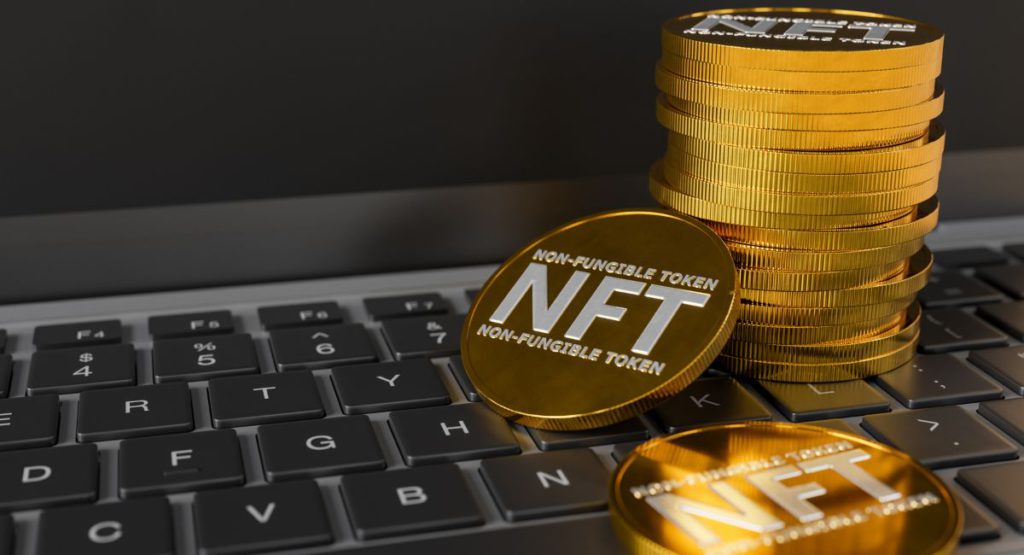How Machine Learning Models Impact In-Game Assets In NFT Gaming

Non-fungible tokens (NFTs) have revolutionized the way we perceive digital ownership, and the gaming industry has been at the forefront of this transformation. NFTs have given rise to unique in-game assets, from rare skins and collectibles to virtual real estate. To further enhance the gaming experience and the NFT economy, machine learning models have emerged as powerful tools, shaping the dynamics of in-game assets. In this article, we delve into the intersection of NFT gaming, and machine learning to understand how these models are impacting in-game assets.
The Rise of NFTs in Gaming

The integration of NFTs in gaming has created a vibrant virtual economy. NFTs, often built on blockchain platforms like Ethereum, enable gamers to own, trade, and monetize their in-game assets. These digital assets can range from unique character skins and virtual items to virtual real estate and collectibles. The concept of true ownership, where players have verifiable and transferable ownership of these assets, has sparked a gaming revolution.
Machine Learning and Gaming: A Powerful Synergy

Machine learning models, a subset of artificial intelligence (AI), have found their way into the gaming industry, enhancing various aspects of gameplay, immersion, and asset management. These models rely on vast datasets and complex algorithms to analyze patterns, predict outcomes, and adapt to player behavior. When applied to NFT gaming, they have several significant impacts:
1. Dynamic Asset Pricing
Machine learning models are capable of analyzing player behavior and market dynamics to predict the value of in-game assets. This dynamic pricing system can help gamers and collectors make informed decisions about buying, selling, or holding their NFTs. It can also be used to set prices for unique in-game items based on their scarcity, demand, and historical performance.
2. Asset Valuation and Appraisals
Determining the value of in-game assets, especially rare or unique ones, can be challenging. Machine learning models can evaluate the rarity and desirability of assets, providing an objective assessment of their worth. This is particularly valuable for collectors and investors in NFT gaming.
3. Player Behavior Analysis
Machine learning models can analyze player behavior to identify trends, preferences, and emerging markets for in-game assets. This insight is valuable for game developers, as it allows them to create content that aligns with player interests, potentially driving the demand for specific NFTs.
4. Fraud and Security
NFT gaming markets are not immune to fraudulent activities. Machine learning models can be used to detect suspicious transactions, account hijacking, or the sale of counterfeit NFTs. This enhances the security and trustworthiness of NFT ecosystems.
5. Predictive Gaming
Machine learning models can create personalized gaming experiences by predicting player behavior and adjusting in-game assets accordingly. For example, they can tailor game difficulty, rewards, or item availability based on player preferences and performance.
6. Enhanced In-Game AI
In single-player games, machine learning models can create more dynamic and adaptive in-game AI opponents. These AI characters can analyze a player’s behavior and adapt their strategies, providing a more engaging gaming experience.
7. Procedural Content Generation
Machine learning can assist in generating game content, from level design to in-game assets. This not only reduces the burden on developers but also allows for more varied and immersive game worlds.
8. Asset Recommendations
Machine learning models can recommend in-game assets or NFT purchases based on a player’s gaming style, preferences, and past transactions. This personalization enhances the player’s experience and engagement with the NFT gaming economy.
Also, read – The Intersection of Machine Learning and NFT Gaming: Implication And Potential
Challenges and Ethical Considerations

The integration of machine learning in the NFT gaming space offers numerous advantages, from dynamic pricing to player behavior analysis. However, this exciting frontier is not without its challenges and ethical considerations that require careful attention. Let’s delve into some of the primary issues and the importance of striking a balance between enhancing the gaming experience and ensuring fairness.
1. Privacy Concerns
Challenge:
Machine learning models often require access to extensive player data to make accurate predictions and recommendations. This raises concerns about data privacy. Players may be uncomfortable with the collection and usage of their gaming behavior and personal information.
Ethical Consideration:
Respecting player privacy is paramount. Game developers and NFT platforms must implement robust data protection measures. This includes obtaining informed consent from players and ensuring that data is anonymized and securely stored. Transparency about data usage and collection practices is crucial to building trust with the gaming community.
2. Data Security
Challenge:
The storage and handling of player data are central to the operation of machine learning models in NFT gaming. A security breach can lead to the exposure of sensitive information, including financial transactions and in-game assets, potentially resulting in financial and reputational damage.
Ethical Consideration:
Protecting player data is not only a legal requirement but also an ethical imperative. Implementing stringent data security measures, encryption protocols, and access controls are vital to safeguarding player information. Regular security audits and vulnerability assessments should be conducted to identify and mitigate risks.
3. Biased Algorithms
Challenge:
Machine learning algorithms can inadvertently learn biases from training data. This bias can manifest in various forms, including discriminatory pricing, unfair rewards distribution, or biased recommendations.
Ethical Consideration:
Addressing algorithmic bias is essential for maintaining fairness in NFT gaming. Developers should employ techniques such as bias detection, fairness-aware machine learning, and diverse training data to reduce and eliminate bias. Regular audits of machine learning models can help identify and rectify any emerging bias.
4. Balancing Profitability and Fairness
Challenge:
NFT gaming platforms may be driven by profit motives, which can lead to practices that prioritize revenue generation over fairness. This may include selling overpowered in-game assets or favoring high-spending players.
Ethical Consideration:
Developers must strike a balance between profitability and fairness. This can be achieved by ensuring that in-game assets are balanced, transparent, and do not create an unfair advantage for a particular group of players. Transparency in pricing, rarity, and value is essential for a fair and enjoyable gaming ecosystem.
5. Inclusivity and Accessibility
Challenge:
The gaming community is diverse, and NFT gaming platforms should ensure that their offerings are accessible and enjoyable for all players. Exclusivity, high entry barriers, or limited accessibility can be detrimental to inclusivity.
Ethical Consideration:
Developers should actively work to make NFT gaming inclusive and accessible. This includes designing in-game economies that allow participation at various levels of investment, avoiding pay-to-win mechanics, and considering the diverse preferences of players. NFTs should not create a divide between high-spending and casual players.
6. Environmental Impact
Challenge:
Many blockchain platforms used for NFTs rely on energy-intensive proof-of-work (PoW) consensus mechanisms. This has raised concerns about the environmental impact, particularly in the context of sustainability.
Ethical Consideration:
NFT gaming platforms should consider the environmental implications of their chosen blockchain infrastructure. Some are transitioning to more eco-friendly alternatives, like proof-of-stake (PoS) or layer-2 scaling solutions, to reduce energy consumption. Environmental sustainability is an important ethical consideration in the era of NFTs.
7. Regulatory Compliance
Challenge:
The regulatory landscape for NFTs and NFT gaming is still evolving. Compliance with existing and emerging regulations, such as anti-money laundering (AML) and know your customer (KYC) requirements, can be challenging.
Ethical Consideration:
NFT gaming platforms should be proactive in adhering to regulatory standards. This includes implementing AML and KYC procedures to prevent illicit activities and protect players. Ethical compliance ensures that NFT gaming remains a legitimate and trustworthy sector.
8. Community Feedback and Governance
Challenge:
NFT gaming communities can be diverse and vocal. Balancing community feedback and implementing governance models that involve players can be complex.
Ethical Consideration:
Listening to the gaming community and involving them in decision-making processes is critical. Transparency in governance and an open dialogue with players can help address concerns and ensure that ethical considerations are met.
The Future of NFT Gaming Economy

The integration of machine learning models into NFT gaming represents a significant step towards a more immersive, dynamic, and personalized gaming experience. As these technologies continue to evolve, we can expect a more sophisticated and player-centric approach to NFT gaming. The synergy between NFTs, gaming, and machine learning will shape the future of the gaming industry, offering gamers a richer and more rewarding virtual world.
We’re live! https://t.co/QWpnvFN6vY
— elisa (@eeelistar) October 24, 2023
In summary, the NFT gaming economy, powered by machine learning models, is poised for remarkable growth and innovation. The ability to dynamically price, value, and personalize in-game assets creates a more engaging and dynamic gaming experience, further solidifying NFTs as a transformative force in the gaming industry.



























































